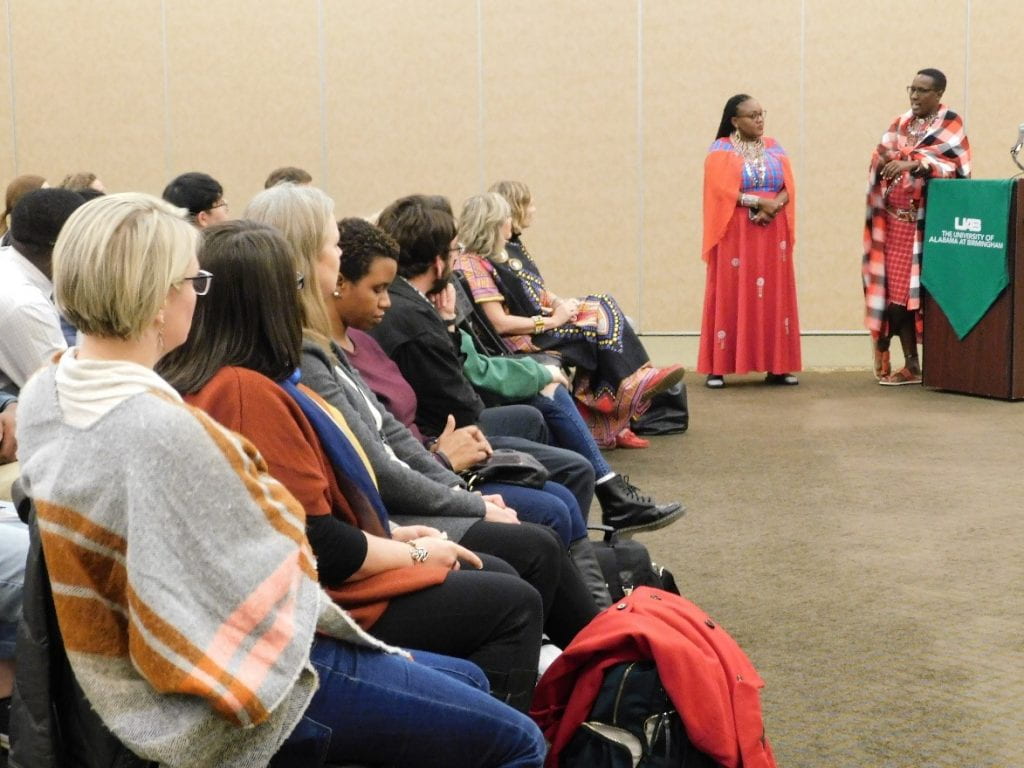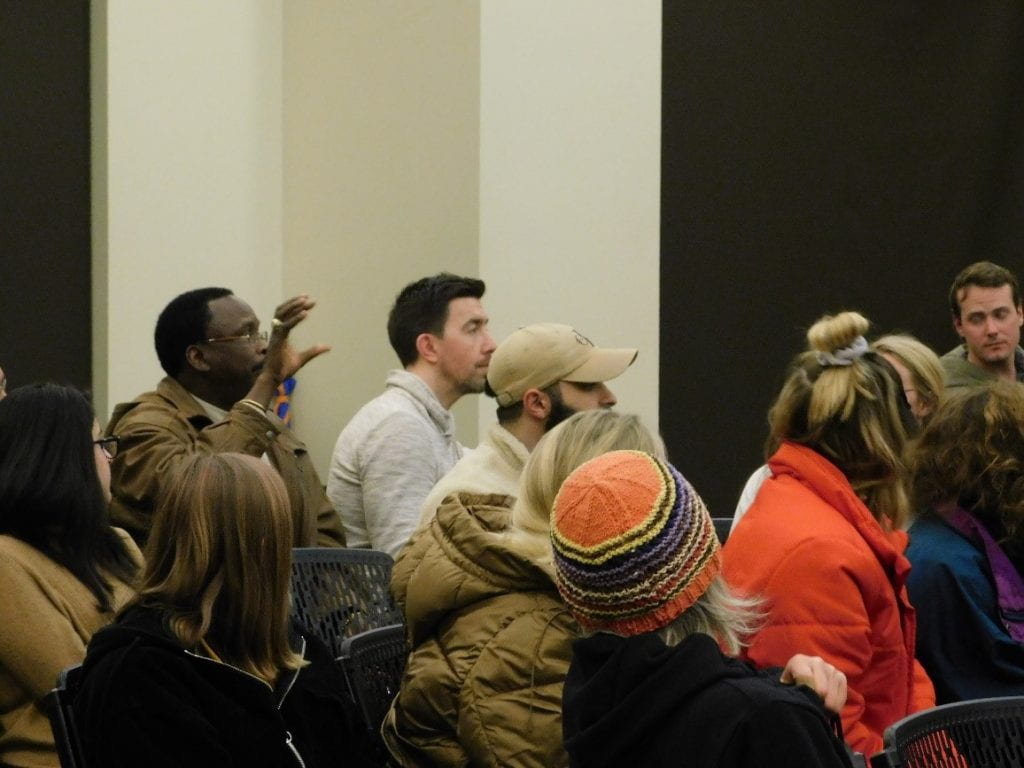On Thursday, January 23rd, the Institute for Human Rights co-sponsored an event alongside Sparkman Center for Global Health to present Nelson Ole Reiya (CEO/Founder) and Maggy Reiya (Education and Gender Coordinator) of Nashulai Maasai Conservancy. During their lecture and discussion with the audience, they addressed their remarkable mission to protect wildlife, preserve culture, and reverse poverty within their community in Maasai Mara, Kenya.
Nelson began with the admission that, amid farming and development efforts in the region, a group of Maasai elders convened under a tree and decided to start a conservancy. In response, Nashulai began in 2015 after a meeting with landowners resulted in the leasing of their land for conservation.
Most Maasai face severe poverty by living on less than one dollar a day, while girls and women are particularly vulnerable. More specifically, many girls are subjected to the practice of female genital mutilation (FGM) which is to prepare them for marriage. Additionally, young women who menstruate without pads are prevented from attending school. In addition to these social issues, because 68% of Kenya’s wildlife lives outside of parks and reserves, the country has lost nearly 70% of its wildlife over the past thirty years. These social and ecological issues demonstrate the need for a ground-up approach that advocates for the Maasai’s people, wildlife, and environment, hence Nashulai.

Nashulai means, “a place that unites all of use people, wildlife, and livestock in common hope for a better world, today and in the future”. Nashulai offers an array of social projects that benefit the Maasai community. Among those projects are: 1.) Nashulai Academy – subsidized education for adolescent girls and a safe house for girls avoiding FGM and early marriage, 2.) Community Water Project – clean water retrieval system from the spring which reduces the distance to fetch water and incidences of waterborne diseases, 3.) Tourism for Social Change – two safari camps where many proceeds support community projects, 4.) Sekenani River Restoration Project – rejuvenation of the main river that support the Maasai community, 5.) Nashulai Cultural Training Centre – knowledge center to preserve indigenous practices of the Maasai, and 6.) Cattle Breeding Project – ecologically sustainable project to support the Boran and Zebu herds of the region, and 7.) Stories Café – upcoming facility where Maasai elders can manage and pass on local culture to the youth.

Particularly within these remarkable endeavors are the Women Empowerment Projects which address anti-FGM, creating lady pads, education, an ambulance for expecting mothers, soap making, and a drama theater club. These efforts highlight the human rights fundamentals to support the education and autonomy of girls and women. Additionally, Nashulai’s ecological efforts demonstrate the need to protect vulnerable environments that threatened by habitat destruction and wildlife depopulation. In sum, Nashulai’s community-based conservation model conveys the importance of ground-up human rights approaches that reject external influence and place community first.
If you would like to support Nashulai Maasai Conservancy, please follow this link.

